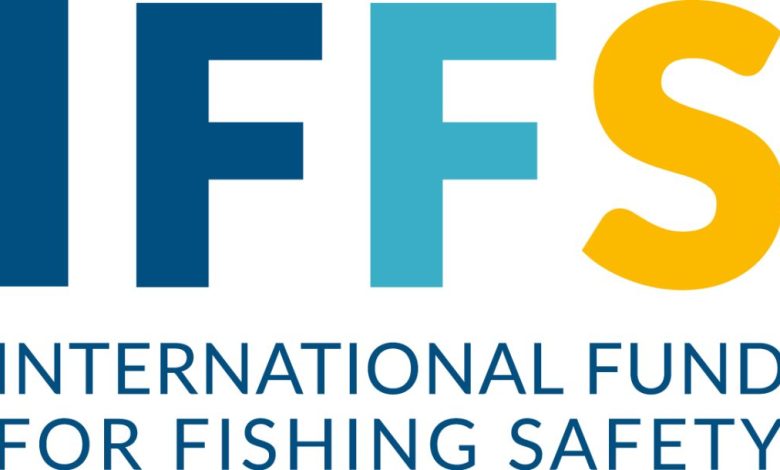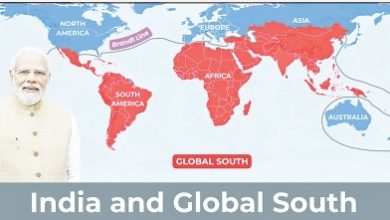How IFFs cripple Africa’s development

LLICIT Financial Flows (IFFs) remain one of the most pressing and destructive challenges facing Africa and the global economy today.
These illegal movements of money across borders often through tax evasion, corruption, money laundering, trade misinvoicing and criminal networks are bleeding developing nations of billions of dollars annually. While the damage is global, Africa bears a disproportionate burden.
According to the United Nations Economic Commission for Africa (UNECA), the continent loses over 88.6 billion US dollar every year through IFFs, an amount nearly equivalent to the total annual official development assistance it receives.
These funds, which could otherwise be invested in education, healthcare, infrastructure and economic development, are siphoned off in secrecy, enriching a few at the expense of many. IFFs are not just about money disappearing, they are about opportunities being stolen.
The diversion of resources cripples’ governments’ ability to provide essential public services and deepens inequality by limiting access to social programmes, particularly in countries where poverty remains widespread. In some African nations, losses from IFFs exceed their health budgets, creating a vicious cycle of underdevelopment.
According to a report by the African Development Bank (AfDB), those illegal financial outflows undermine good governance and weaken institutions, making it harder for countries to break free from dependency and achieve sustainable development.
As economies struggle to recover from global crises such as the COVID-19 pandemic and climate-related disruptions, stopping these flows is more urgent than ever. The global nature of IFFs means that African countries cannot tackle this problem alone, it needs another multispectral approach in order to eliminate it.
Multinational corporations exploit loopholes in tax laws, shell companies operate in secrecy jurisdictions and complicit financial institutions facilitate hidden transfers. Y
et, the costs are borne mostly by developing nations. A joint report by the United Nations Conference on Trade and Development (UNCTAD) and UNECA highlights that up to 5 per cent of Africa’s GDP is lost annually due to IFFs. This silent economic leakage is robbing the continent of its future.
To address this crisis, there must be stronger regulatory frameworks, international cooperation and transparency in financial systems. African governments, civil society and global actors must unite to stem the tide of illicit flows not just for economic survival, but for the future prosperity and sovereignty of the continent.
In order to ensure that the issue of IFFs is addressed, the non-governmental organisation Policy Forum recently, in the city of Dodoma, convened a multi stakeholder dialogue on Illicit Financial Flows (IFFs) in Tanzania.
According to organiser of the meeting Policy Forum, Manager- Advocacy & Engagement Mr Elinami John the purpose of that highlevel convening was to bring together key stakeholders including technocrats, members of parliament, representatives from local government authorities, civil society organisations, media, academia and the private sector to examine the impacts of IFFs on Tanzania’s economy and governance.
He said the dialogue served as a platform to identify policy and institutional gaps, shared best practices and codevelop sustainable strategies to curb IFFs and was also aimed to illuminate the scale and channels of IFFs affecting Tanzania, including trade misinvoicing, illicit tax practices and weaknesses in regulatory systems.
Another goal of the meeting according to Mr Elinami was to explore the consequences of IFFs on domestic resource mobilisation, public service delivery and national development goals.
“The meeting was also aimed to encourage cross sectoral collaboration and policy coherence to address systemic enablers of IFFs. Promote evidence-based advocacy and sustained civic engagement on financial transparency and accountability,” he explained.
Presenting a paper on how IFFs works and affects both the countries and world economy, the IFFs Facilitator Ms Nora Kawiche from St Augustine University of Tanzania (SAUT) said IFFs are bleeding the country’s economy.
She said IFFs are defined as the cross-border movement of money or resources that are illegally earned, transferred, or utilised.
She said IFFs are divided into two forms, both criminal and commercial activities where in criminal activities it involves money laundering, human and drug trafficking, mineral smuggling and terrorism finances and for commercial activities it involves both tax evasion and tax avoidance and trade misinvoincing.
Explaining the impact of IFFs in the African continent, she said according to the UNCTAD 2020 report, Africa is losing about 88.6 US billion dollars (232.22tr/- ) every year equivalent to 3.7 per cent of the continent’s gross domestic product (GDP).
Citing an example of case study of Glencore Company corruption case of 2017 which is a multinational company dealing in commodities, oil and minerals, which was engaged in corruption for over a decade to secure oil and mineral contracts, to avoid audits and lawsuits to various countries like Nigeria, Cameroon, Democratic Republic of Congo (DRC), Ivory Coast, Equatorial Guinea and South Sudan.
ALSO READ: Shared Seas, Shared Future: Africa’s strategic role in Global Ocean Protection
She said corruption was carried out, where Glecon was paid over 100m/- USD in bribes by using intermediaries and font companies to disguise illegal payments.
She said the company also used shell companies and fake consulting service contracts with no real services provided to get more funds due to IFFs.
She said that in the fight against that illegal business of money and resources in Africa, extra efforts are needed to control that trade, claiming that it involves people from all walks of life in society.
She clarified that while the African continent continues to question why it is losing so much money due to IFFs, these countries are also asking why IFFs continue to persist despite the existence of laws and institutions.
IFFs in Tanzania Ms Kawice said according to the 2021 Global Financial Integrity report, Tanzania is losing 1.83bn/- USD (4.79tr/- ) annually due to IFFS.
She said according to Tanzania Extractive Industries Transparency Initiative (TEIT1) recent report, Tanzania was losing 360m/-USD equal to 844bn/- from 2010-2017 due to trade– misinvoicing and transfer mispricing. She said the impact of IFFs in Tanzania was found on the revenue’s loss, government budget deficit and increase of national debt.
She said as of 30th June 2024 Tanzania’s national debt reached 97.35tr/- and marks an increase of 15.1tr/- from the 82.25tr/- in 2022/23.
“The rise represents an 18.36 per cent increase compared to the previous financial year,” she said.
She however said, Tanzania has also taken various measures to address IFFs including legislative reforms, including enactment of beneficial ownership regulation, amendment of Anti-Money Laundering Act, 2022, enactment of transfer pricing regulations 2018, amendment of Companies Act, 2002 (Finance Act 2020) and amendment of Tax laws.
According to her, other measures that have been taken by the government include strengthening of the various institutions, including establishment of the Transfer Pricing Unit (TRA), Financial Intelligence Unit (FIU). Beneficial Owner Registry (BRELLA) and establishment of Tax Incentive Monitoring Unit (TRA).
She said despite all amendments done by the government in the fight of IFFs, there is still a challenge of policy, legal and institutions gaps, where there is still an existence of weak laws and enforcement, poor inter –agency coordination.
“There are still gaps in beneficial ownership transparency and lack of public access to mining agreement,” she said.
Responding to questions raised by participants what should be done in order to end IFFs, she said there might be a political will to curb IFFs and review of laws so identify weaknesses that create gaps allowing IFFs to persist.
She said also there must be a strong emphasis on tax transparency and international cooperation that will align with international best practices in addressing IFFs, strengthen interagency coordination and enforce beneficial ownership disclosure law.
“The country must form or establish a high-level interagency committee on IFFs and also promote transparency and accountability,” she said, adding that there is a need to review various laws so that they can tackle IFFs.
Policy Forum Board Chairman, Mr. Israel Ilunde, said the one-day meeting aimed to facilitate critical discussions focused on examining the outflow of finances from the country.
“As Policy Forum, we have been actively advocating on various issues aimed at promoting equality in matters of governance and good governance and also the issues of IFFs at its broader contest,” he explained.
The Vice-Chairperson of the Parliamentary Standing Committee on Budget, Mr Twaha Mpembenwe, said that the issue of IFFs requires joint efforts from citizens and the government to combat it.





